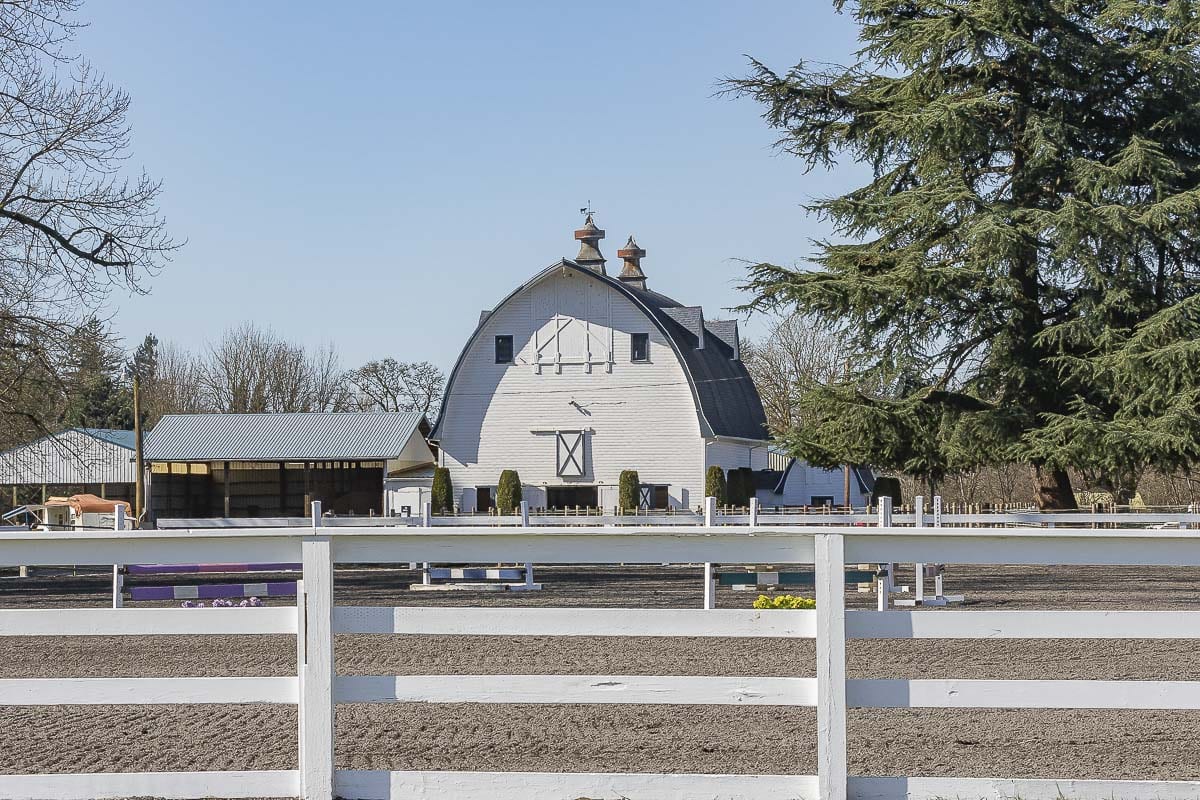The county is looking for input on potential code changes focused on boarding businesses
CLARK COUNTY — After a pandemic-related delay, Clark County’s equestrian community will finally get the chance to weigh in on proposed changes to rules governing its equestrian and horse boarding regulations.
It was all the way back in February of this year, as the COVID-19 pandemic slowly spread into the United States, that members of Clark County’s equestrian community packed a County Council meeting, airing their grievances.

They were primarily upset following a Dec. 24, 2019 letter sent to Amy Vesneske, ordering her to cease operation of her boarding business due to code violations.
In that Feb. 25 council meeting, Vesneske and other horse owners blasted the county over those rules.
“Out of the 150-plus barns in Clark County, there is not a single one of them that meets the current codes,” Vesneske said. “There is no boarding facility or horseback riding lesson program that is compliant with these codes.”
In Vesneske’s case, the county demanded she obtain a Type 2 permit, which is required for businesses such as Home Depot or McDonald’s. But she, along with several others who spoke during the meeting, noted that the rules were not written for historic barns or repurposed dairy buildings, which are often used to board horses.
Other rules that drew criticism included one requiring barns to be soundproofed, with horses kept inside from 10 p.m. until 7 a.m.
While horse ownership in Clark County has fallen in recent years, Alice Heller with the Executive Horse Council says there are still over 20,000 in the county. At least 44 percent of those are kept in boarding facilities.
“As Clark County has become more urbanized, less families are able to purchase enough acreage to support a horse on their own property,” Heller told the councilors. “Often the only way we can continue to enjoy the equine life is to utilize a boarding stable.”
A 2019 survey of 677 people led to an estimate that horse owners and businesses who cater to them translate to approximately $94 million in economic activity each year for Clark County.
A previous public hearing, which had been scheduled for March 25, was postponed following the initial cases of COVID-19 in Clark County and implementation of Gov. Jay Inslee’s executive order closing public meetings to the public.
The new hearing date is Wed., Oct. 7, from 6-8 p.m. The event will happen remotely, using WebEx, and anyone wishing to speak is asked to register in advance for the moderated forum.
Ninety minutes of the forum will be set aside for public comment. Each speaker will have up to three minutes to express their support, objections, opinions, ideas and recommendations.
Anyone wishing to speak during the event is asked to sign up at https://clark.wa.gov/code-administration/rural-equestrian-facilities-public-participation-event.
Due to time limits, there will be a maximum of 30 speakers during the event. County staff will contact those who sign up to speak with further information.
The discussion topics are listed and numbered below. Speakers are asked to reference the numbered item from the list when speaking during the participation event.
- Building requirements (e.g. setback distances, storm drainage, occupancy limits, etc.)
- Private vs. Public Use (e.g. requirements, standards, etc.)
- Operational impacts (e.g. noise, odor, dust, traffic, etc.)
- Other (e.g. definitions, etc.)
Anyone who is unable to speak during the forum can submit comments in writing. Those can be submitted either by standard mail addressed to Clark County, Attn: Code Administration-Equestrian Feedback, PO Box 9810, Vancouver, WA 98666-9810
Comments can also be sent via email to equestrianfeedback@clark.wa.gov.
The deadline to submit comments is 5 p.m., Fri., Oct. 16.
Anyone wanting to listen to the WebEx event can call 1 (408) 418-9388 and use the access code 146 067 7849. Clark-Vancouver TV will record the session and it will be available on their website at www.CVTV.org and posted to the county web page after the event.
Members of the Clark County Council will be in attendance, but will not respond to comments during the session. No vote on policy changes will be taken at this meeting.




